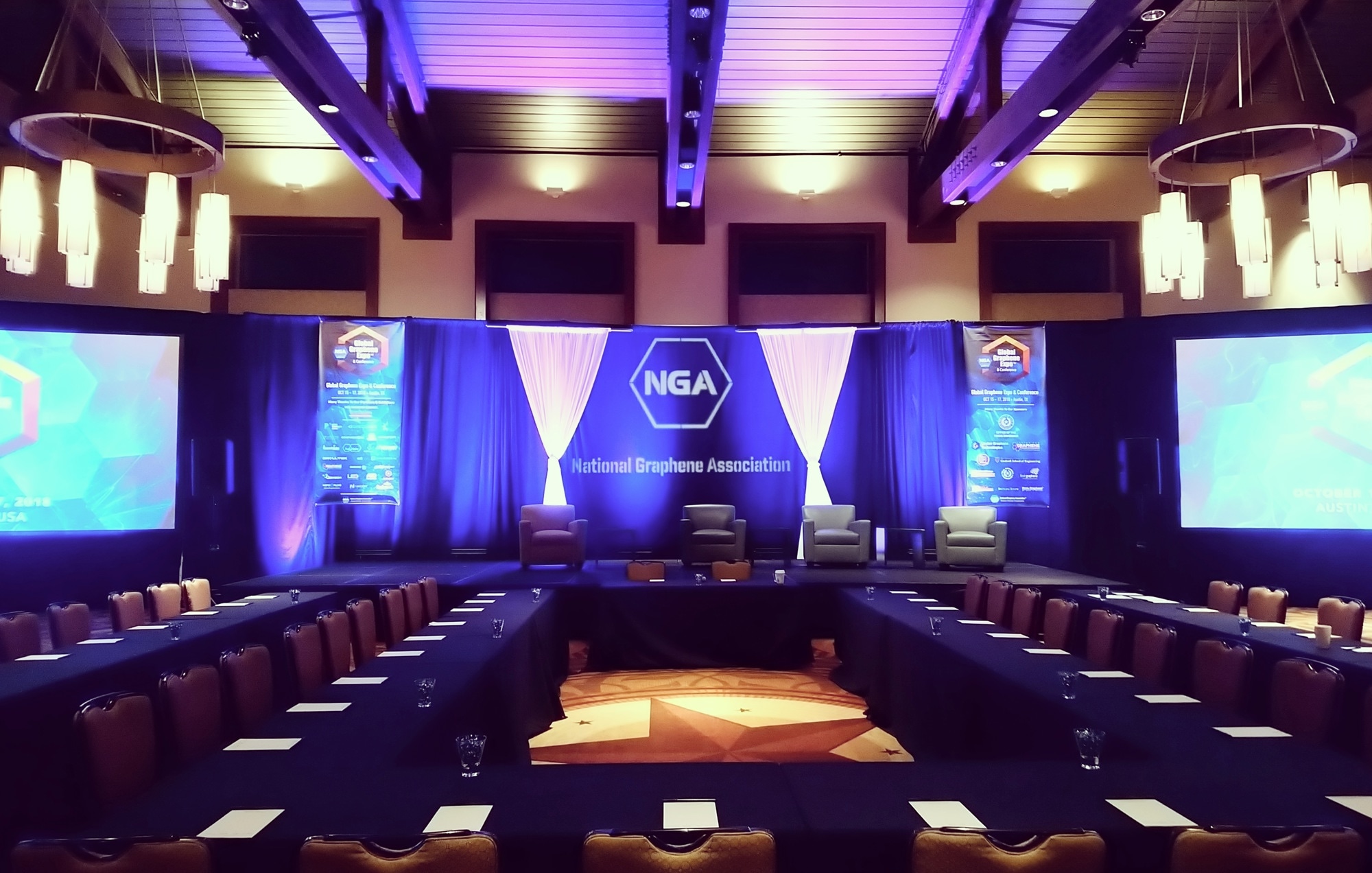
Image Credits: AZoNano
The National Graphene Association (NGA) is the primary U.S. based organisation publicly promoting the commercialization of graphene. Despite only running for two years, is has already had a significant impact on the graphene industry. In October 2018, the NGA held its second Global Graphene Expo & Conference in Austin, Texas, and AZoNano attended as a media partner. One of the most striking and refreshing things about the event, was the fact that it was run and organized by a team consisting mainly of women.
While groups like STEM and WISE are slowly becoming more and more commonplace, it can be rare to find large collections of women in materials research. In figures released by STEM in 2018, only 31% of the STEM industry ‘Professional, Scientific and Technical’ are currently female. Within that, women make up 43.2% of Science Professionals and only 27% of Science and Engineering Technicians.
Encouragement to go into and stay in science disciplines is improving, with schools and universities offering a number of free events for women to explore these career routes. However, what’s vitally important is that young people also have role models in those areas to look up to - something that was certainly achieved at the Global Graphene Expo.
The event was chaired primarily by Dr. Zina Jarrahi Cinker, the Executive Director of the National Graphene Association. She gained her Ph.D. in Condensed Matter & Ultrafast Physics with a focus on "Electron-Phonon Dynamics in Graphene" from Vanderbilt University. The audience and list of speakers also consisted of numerous prominent women throughout the graphene and scientific community.
The conference covered numerous aspects of the graphene industry. Discussions were held over the future of the material’s standardization, including a talk from Denis Koltsov, the Chairman of ISO TC299. James Baker, the CEO of the National Graphene Institute in Manchester, spoke about the importance of avoiding the ‘hype curve’; something which was detrimental to the progress and commercialization of carbon nanotubes. New ideas and pitches were also presented to demonstrate the capabilities of graphene and graphene-incorporated products.
One piece of research from Rice University stood out as particularly significant. Using graphene nanoribbons, the study team were able to ‘knit’ together spinal cords of rats that had been damaged or severed. Within three weeks, the rat had gone from paralyzed to walking. This is partly down to graphene’s conductive surface, as it can stimulate neuron growth. This is a massive leap forward in both graphene and spinal research and potentially offers a fantastic solution in the future for human spinal injuries.
Alongside these presentations, the conference offered a fantastic opportunity to meet other professionals in similar industries and fully encouraged collaboration. A networking session was organized and provided an excellent ice-breaker between attendees. There were also lunch and dinner options, allowing a more informal way to meet other guests.
Downstairs was a small exhibition area, which enabled a few companies to showcase their work. These stalls provided a refreshing break between presentations and stimulated many interesting conversations.
The National Graphene Association aims to promote the commercialization of graphene globally, starting with the legislation and policies in the US. Therefore, it was heartening to see that the support of the conference had extended from the Governor of Texas, Greg Abbott. To ensure that graphene is taken seriously and stays at the forefront of materials research and funding, it is vital to get this level of support.
The Global Graphene Expo was considered a complete success. Not just because of its bold demonstration of women in materials research and science, but also because it didn’t hold back from the issues graphene commercialization faces. The problems were spoken about and discussed with a frankness that can only aid its future development. There is no doubt that many crucial and successful partnerships were created this year, and we can only hope that it continues for many years to come.
Sources & Further Reading